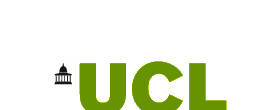The 17th CREST Open Workshop
Software Testing and Verification
Date: 31 January - 1 February 2012
Venue: Engineering Front Executive Suite, Roberts Building, UCL (Directions, or 'C5' on the map here, or Find it on Google maps.)
There has been tremendous recent progress in both software testing and verification. Testing focuses on finding bugs that may remain by executing the whole system in situ. Verification seeks to guarantee freedom from well-defined classes of faults within clearly delineated subsystems. There is clearly a natural and compelling meet point between these two complementary technique sets: while verification seeks to ensure freedom from certain classes of faults, testing seeks to identify those that may yet remain. Some of the approaches and nomenclature of these two vital fields of software assurance overlap, while others are strikingly different in their underlying philosophy and intellectual lineage. This is the motivation for this workshop. The workshop will draw together experts in verification and testing to explore shared methods and techniques and to better understand their conflicts and complementarily.
Programme: (Downloadable programme in PDF)
+++++++++31 January – DAY 1+++++++++
10:00 Arrival, Coffee and Pastries
10:30 Welcome and Introductions (Video, Introduction)
Mark Harman, CREST Centre, SSE Group, Department of Computer Science UCL, UK
11:15 working title: Overview of Software testing (Slides, Video)
Antonia Bertolino, Software Engineering Research Laboratory, ISTI - Istituto di Scienza e Tecnologie dell'Informazione A. Faedo, Italy
12:00 Experimental Program Analysis (Slides, Video)
Andreas Zeller, Computer Science, Saarland University, Germany
12:30 working title: Automatically quantifying information leaks in software (Slides, Video)
Pasquale Malacaria, Queen Mary University of London, UK
13:00 Sandwich lunch at the venue
14:00 Dynamic Symbolic Execution for Software Bug-Finding (Slides)
Cristian Cadar, Department of Computing, Imperial College London, UK
14:30 Using Information Theory to Avoid Fault Masking in Software Testing (Slides, Video)
David Clark, CREST Centre, SSE Group, UCL, UK
15:00 The Yogi Project: Software property checking via verification and testing (Slides, Video)
Aditya Nori, Microsoft Research India
15:30 Refreshments
16:00 IMUnit: Improved Multithreaded Unit Testing (Slides, Video)
Darko Marinov, Department of Computer Science, University of Illinois, USA
16:30 Discussion: How can Verification and testing be combined in useful ways?
Chaired by Mark Harman
18:00 End of day 1
From 18:15 Light dinner at the Marlborough Arms
+++++++++1 February – Day 2+++++++++
9:00 Arrival, Coffee and Pastries
9:30 Towards Automatic Synthesis of Software Verification Tools
Andrey Rybalchenko, Technische Universität München, Germany
10:00 working title: Interpolating the world
Daniel Kroening, University of Oxford, UK
10:30 Checking Atomicity of Composed Operations (Slides, Video)
Shmuel (Mooly) Sagiv, Tel Aviv University (TAU), Israel
11:00 Refreshments
11.30 Tool demonstration session
Dino Distefano: INFER: an automatic program verifier for Memory Safety of C programs
Kiran Lakhotia: The AUSTIN open source search based testing tool for C
Nadia Alshahwan: The SWAT search based testing tool for Web Applications
Yue Jia: The Milu open source mutation testing tool for C
13:00 Sandwich lunch at the venue
14.00 Discussion: Next steps to develop an agenda for testing and verification,
chaired by Peter O’Hearn
15:00 Refreshments
15.30 Automated System Testing of Real-Time Embedded Systems Based on Environment Models (Slides, Video)
Lionel Briand, Simula Research Laboratory, Norway
16.00 working title: Pex and Moles - Isolation and White box Unit Testing for .NET
Nikolai Tillmann, Microsoft Research USA
16.30 Learning-based runtime verification (joint work with Bernhard Steffen)
Tiziana Margaria-Steffen, University of Potsdam, Germany
17:00 Abstractions from Tests (Slides, Video)
Hongseok Yang, Computing Laboratory, University of Oxford, UK
17:30 Wrap-up: next steps
18.00 Close
Photos:
Talks:
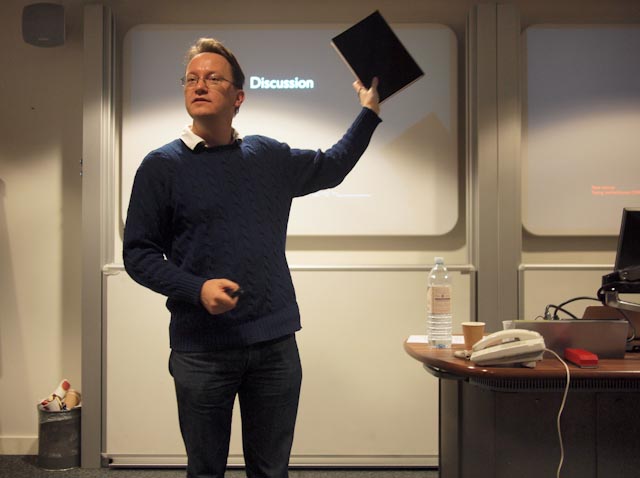
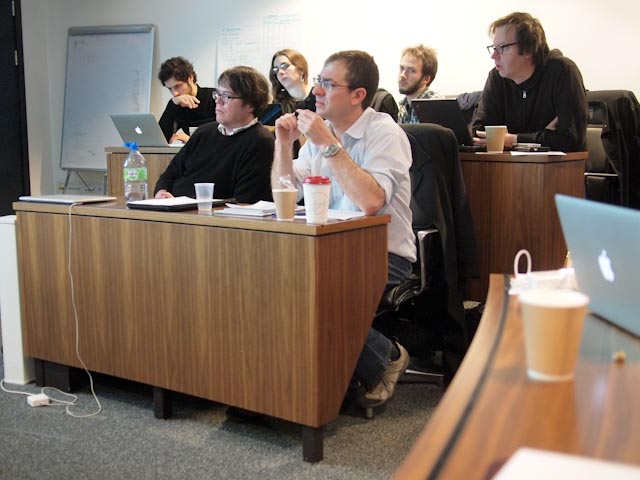
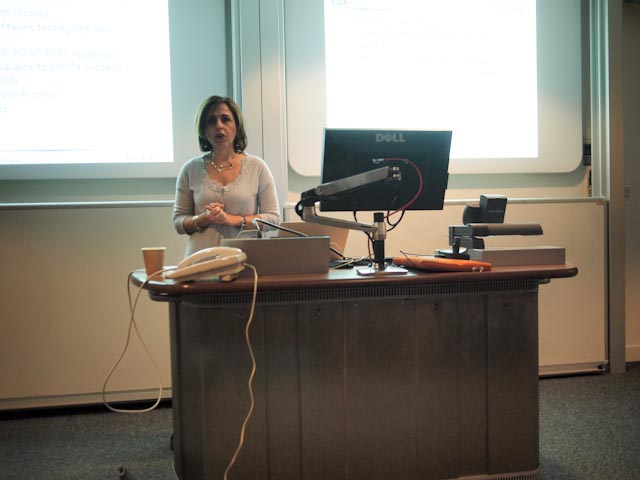
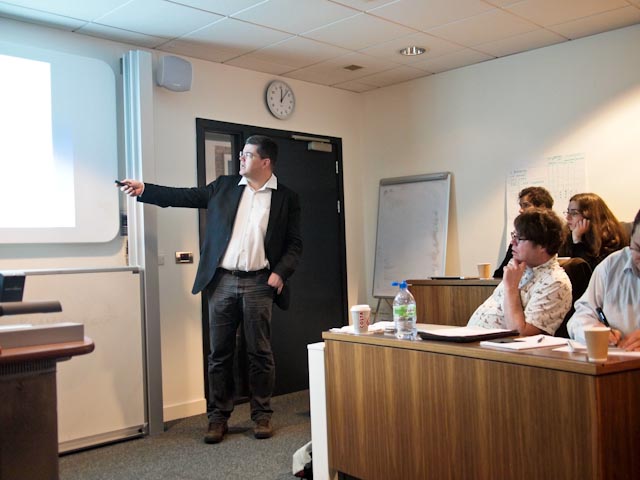
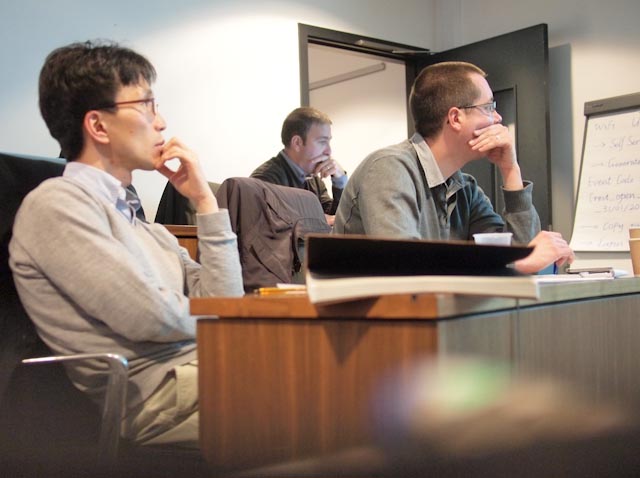
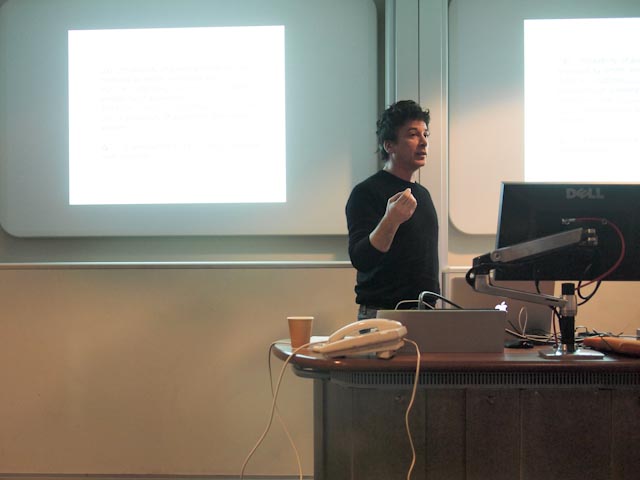
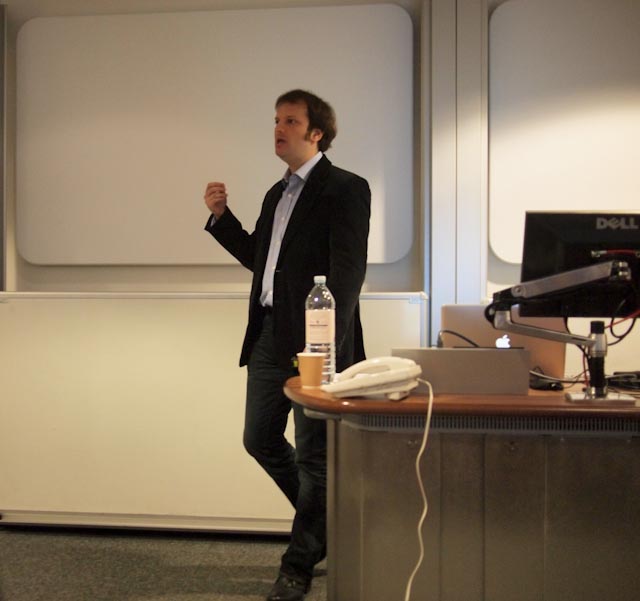
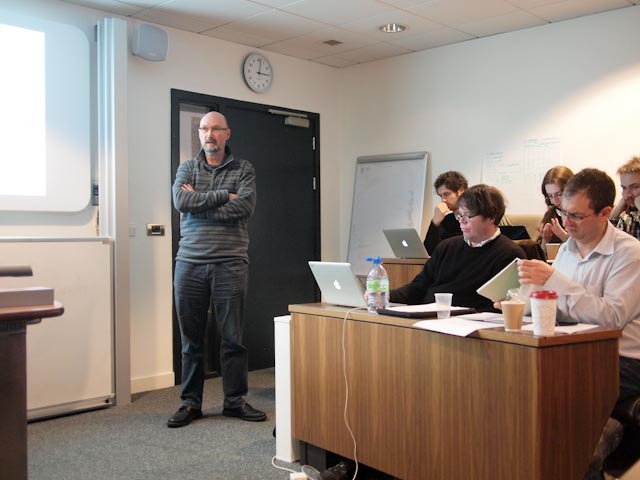
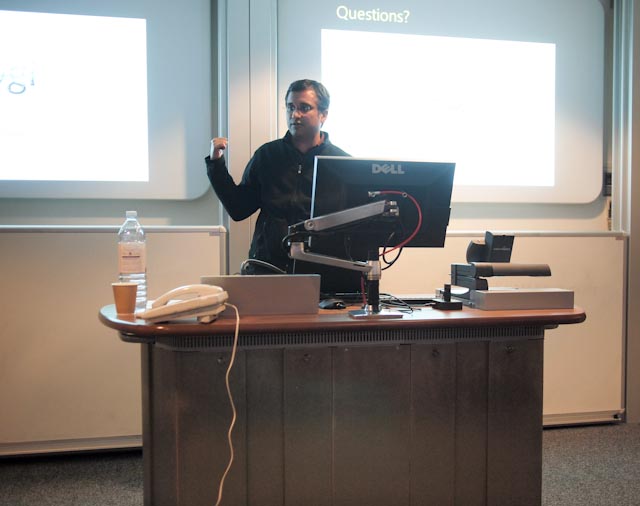
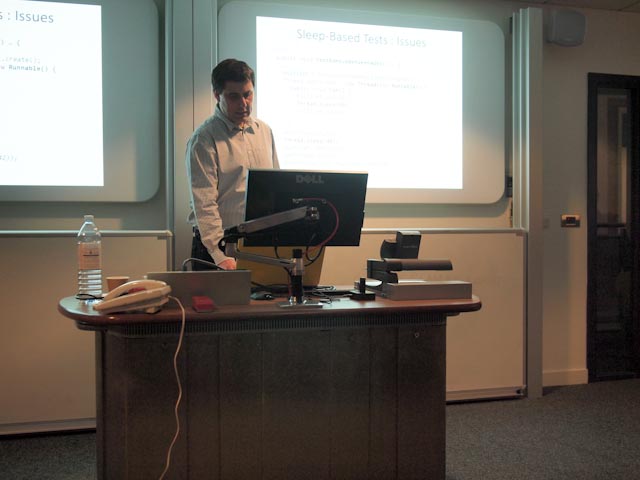
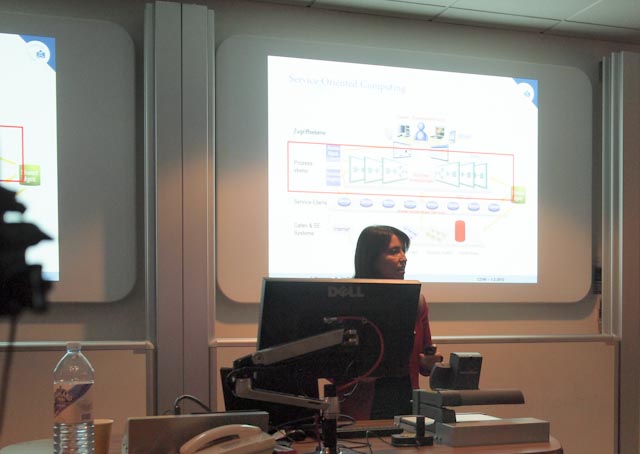
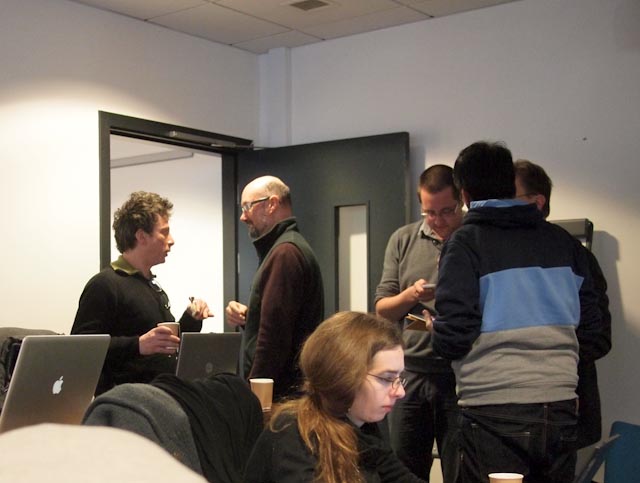
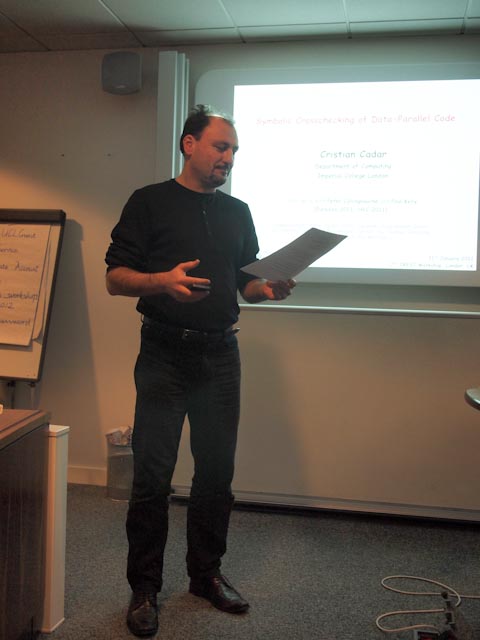
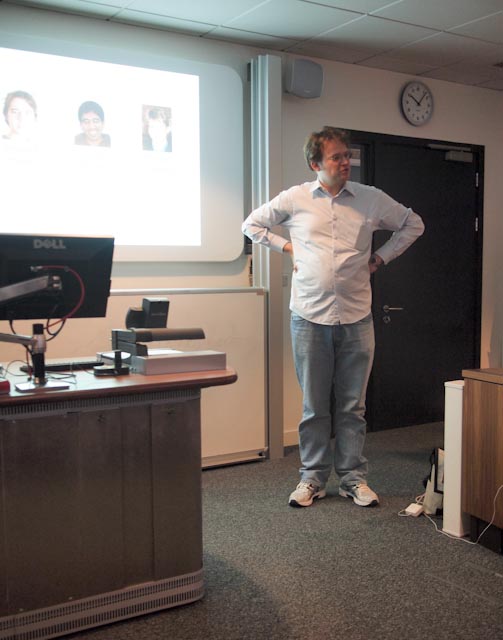
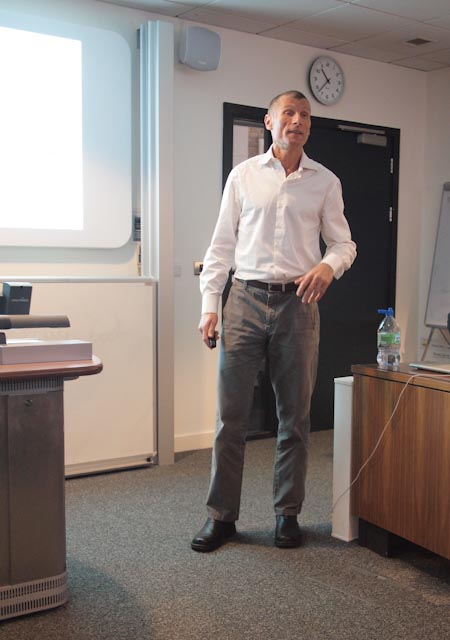
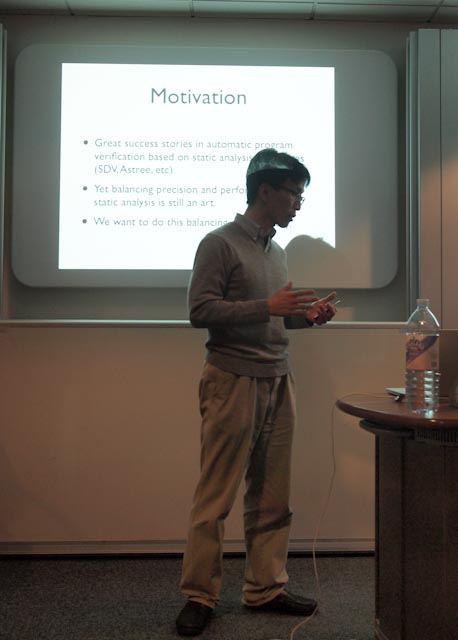
This workshop is supported by the following sponsors:
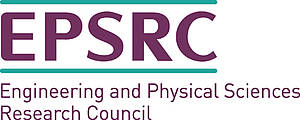


Registered Attendees: REGISTRATION IS CLOSED.
- Mohammad Abdallah, School of Engineering and Computing Sciences, Durham University, UK
- Jade Alglave, Department of Computer Science, Oxford University, UK
- Dalal Alrajeh, Department of Computing, Imperial College London, UK
- Nadia Alshahwan, CREST Centre, Department of Computer Science, UCL, UK
- Kelly Androutsopoulos, CREST Centre, Department of Computer Science, UCL, UK
- Martin Berger, Department of Informatics, University of Sussex, UK
- Antonia Bertolino, Software Engineering Research Laboratory, ISTI - Istituto di Scienza e Tecnologie dell'Informazione A.Faedo, Italy
- Jan Božnik, Institute of informatics, University of Maribor, Slovenia
- Lionel Briand, Simula Research Laboratory, Norway
- Cristian Cadar, Department of Computing, Imperial College London, UK
- David Clark, CREST Centre, SSE Group, Department of Computer Science, UCL, UK
- Byron Cook, School of Electronic Engineering and Computer Science, Queen Mary University of London, UK
- Dino Distefano, School of Electronic Engineering and Computer Science, Queen Mary University of London, UK
- Mark Harman, CREST Centre, SSE Group, Department of Computer Science, UCL, UK
- Robert M. Hierons, School of Information Systems, Computing, and Mathematics, Brunel University, UK
- Sebastian Hunt, City University London, UK
- Yue Jia, CREST Centre, SSE Group, Department of Computer Science, UCL, UK
- Derek Jones, Knowledge Software, UK
- Ravi Khadka, Utrecht University, The Netherlands
- Jens Krinke, CREST Centre, SSE Group, Department of Computer Science, UCL, UK
- Daniel Kroening, University of Oxford, UK
- Kiran Lakhotia, CREST Centre, Department of Computer Science, UCL, UK
- Pasquale Malacaria, School of Electronic Engineering and Computer Science, Queen Mary University of London, UK
- Tiziana Margaria-Steffen, Service and Software Engineering, University of Potsdam, Germany
- Darko Marinov, Department of Computer Science, University of Illinois, USA
- Phil McMinn, University of Sheffield, UK
- Mark Micallef, Deapartment of Computer Science, University of Malta, Malta
- Aditya Nori, Microsoft Research India
- Peter O'Hearn, Computer Science School of Electronic Engineering and Computer Science, Queen Mary, University of London, UK
- Temitope Onunkun, Department of Informatics, King's College London, UK
- Franco Raimondi, Middlesex University, UK
- Noam Rinetzky, Computer Science School of Electronic Engineering and Computer Science, Queen Mary, University of London, UK
- Daniel Rodriguez, The University of Alcalá, Spain
- Larissa Romualdo, Department of Computer Science, UCL, UK
- Andrey Rybalchenko, Institut für Informatik (I7), Technische Universität München, Germany
- Shmuel (Mooly) Sagiv, Tel Aviv University (TAU), Israel
- Muzammil Shahbaz, University of Sheffield, UK
- Nikolai Tillmann, Microsoft Research USA
- Laurence Tratt, Department of Informatics, King's College London, UK
- Jules Villard, Computer Science School of Electronic Engineering and Computer Science, Queen Mary, University of London, UK
- Hongseok Yang, Computing Laboratory, University of Oxford, UK
- Shin Yoo, CREST Centre, SSE Group, Department of Computer Science, UCL, UK
- Andreas Zeller, Computer Science, Saarland University, Germany
